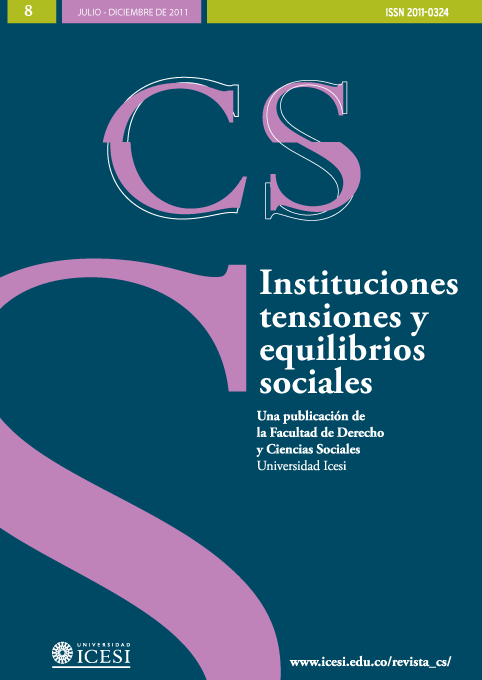Power, conflict and order. Villa de las Palmas (Colombia) National Penitentiary
DOI:
https://doi.org/10.18046/recs.i8.1138Keywords:
Prison, Power, Conflict, Social Interaction, OrderAbstract
In this paper, readers will find a description of such a particular social institutions as prison. The aim of this paper is to demonstrate how, along social interactions during daily life of detainees, relations between power and conflict have been constructed giving the way to the order alterative to the legal one endorsed by the State. Despite of the fact that this institution is based on the convergence of diverse actors of power like the administration, the guards, and the detainees, it is the relations between the latter two which are of a special interest to the author of this paper, since these actors are transformed into the key ones in terms of power needed to construct what we have called an alternative order.Downloads
References
Dostoyevski, F. (1975). Memorias de la Casa Muerta. Tomo I. Madrid, España: Aguilar.
Durkheim, E. La División del Trabajo Social. Madrid, España: Akal.
Foucault, M. (1991). El Sujeto y el Poder. Bogotá, Colombia: Carpe Diem.
Foucault, M. (1984). Vigilar y castigar. Nacimiento de la prisión. México D.F., México: Siglo XXI.
Hobbes, T. (1994). Leviatán. México D.F., México: F.C.E.
Ley 65 de 1993 ''Código Nacional Penitenciario''.
Rousseau, J. J. (1993). El Contrato Social. Barcelona, España: Altaya.
Simmel, G. (1964). Conflict and The Web of Group–Affiliations. New York, USA: First Free Press Paperback Edition.
Weber, M. (1997). Economía y Sociedad. Bogotá, Colombia: F.C.E.
Downloads
Published
Issue
Section
License
Copyright (c) 2011 Miriam Fajardo

This work is licensed under a Creative Commons Attribution-NonCommercial 4.0 International License.
© Reserved Copyright
Material in this publication may be reproduced without authorization, provided the title, author and institutional source is acknowledged.
The content published in Revista CS is distributed under the Creative Commons BY-NC 4.0 Attribution/Recognition-NonCommercial 4.0 International license.
You are free to:
Share — copy and redistribute the material in any medium or format.
Adapt — remix, transform, and build upon the material.
Under the following terms:
Attribution — You must give appropriate credit , provide a link to the license, and indicate if changes were made . You may do so in any reasonable manner, but not in any way that suggests the licensor endorses you or your use.
NonCommercial — You may not use the material for commercial purposes.












